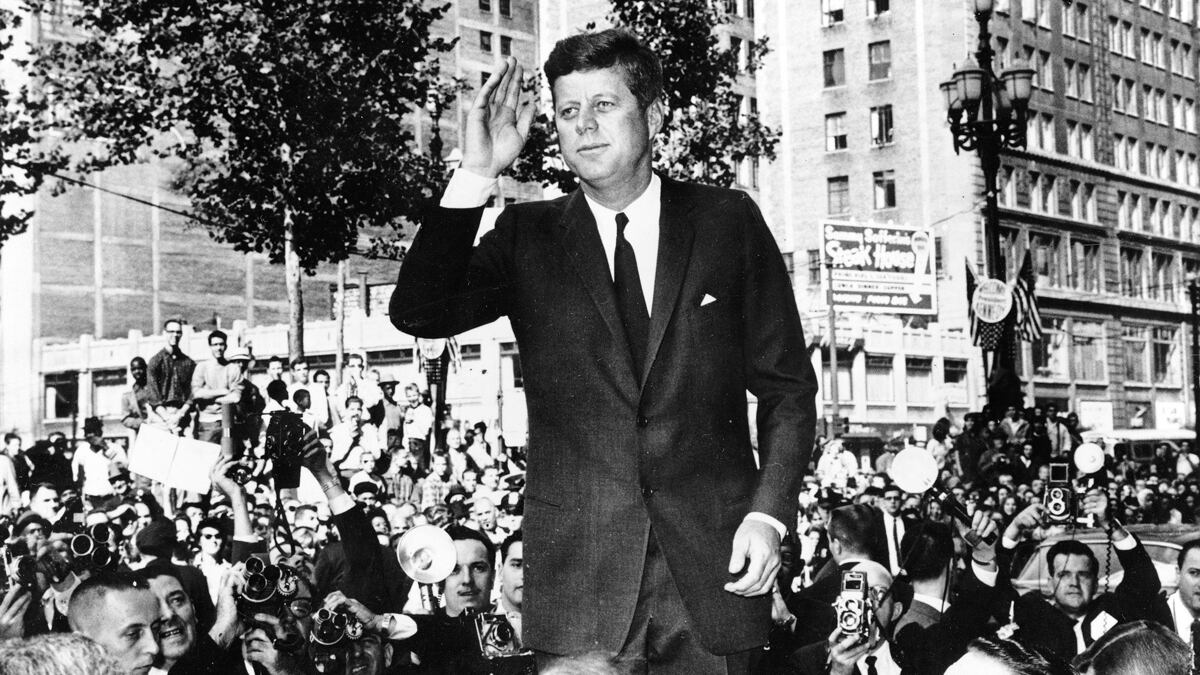The publication of Mimi Alford’s book describing an 18-month affair with President John F. Kennedy provides titillating details that have made it an overnight media sensation. Aside from the prurient interest so graphic a description of the president’s love life evokes, the book indirectly raises serious questions about presidential character that the candidacies of Herman Cain and Newt Gingrich had recently brought back into public focus.
When Gingrich attacked CNN’s John King for bringing up his alleged proposal of an open marriage to his second wife, Gingrich accused him of lowering the level of discourse in a presidential debate, suggesting that such a discussion is unworthy of consideration by voters.
Was he right? Not by my lights. Presidents are not only the country’s principal policy chief, shaping the nation’s domestic and foreign agendas, but also the most visible example of our values. As a country that prides itself on being the world’s exemplar of human rights, the rule of law, and moral standards, it is embarrassing to have men seeking and/or serving in the presidency who fall short of our highest ideals. True, most Americans give lip service to the proposition that even the most exalted among us have their flaws, but we are eager to believe that presidents manage to rise above the limitations that beset the rest of us.
We have been constantly disappointed in the many ways presidents and lesser public officials have fallen short of what we expected of them—Harding’s Teapot Dome scandal; Harry Truman’s influence-peddling associates; John Kennedy’s hidden medical history and compulsive womanizing; Ted Kennedy’s Chappaquiddick; Lyndon Johnson’s vulgarity that many complained undermined the dignity of the presidency; Richard Nixon’s resignation for abuse of power; Ronald Reagan’s Iran-contra scandal; Bill Clinton’s Monica; and George W. Bush’s Valerie Plame expose are among the most memorable of our recent public embarrassments.

Might not the country be better off without all the media attention these episodes have commanded? It’s one thing to have forced Watergate out into the open; after all, this was an assault on the country’s democratic process. But do we really need to know all the details about Kennedy’s seamy affair with the 19-year-old Mimi? When I included 38 words about this affair in my 2003 800-page JFK biography, I thought it germane, not because we needed to know about another Kennedy tryst, but because it demonstrated the shift in social mores and the media from the '60s to today: seven journalists I talked to said they knew about Kennedy’s womanizing but conformed to current standards that deterred them from writing about it.
Whether we like it or not, president’s private lives are no longer hidden from public view. And it is not without benefit to have this information. Presidential character matters and not just for the symbolic reasons I mentioned. Wouldn’t the country have been better served taking account of Harding’s moral failings? Certainly, voters acted recklessly in ignoring complaints that Nixon, despite assertions that we were dealing with the “new” Nixon, deserved the epithet, “tricky Dick.” We were certainly forewarned about Clinton’s womanizing, which undermined his presidency. James Monroe’s assertion that “national honor is the national property of the highest value” remains an enduring ideal.
Should politicians’ character flaws, then, bar them from office, especially the oval office? Or does this set an impossibly high standard? Probably. Presidential aspirants reach for the highest office to satisfy some yearning for greatness or even immortality. The historian Richard Hofstadter said that politics for a majority of office holders, and particularly those obsessed with getting to the White House, is a form of vocational therapy. Grandiosity or convictions about standing apart from ordinary men seems to be a central component of the country’s most ambitious politicians. Ambition, of course, is not without its virtues. But when politicians, and especially presidents, let their need to win eclipse the larger good, as has so often been the case, it makes presidential striving a national problem.
None of this should erase the many achievements of the most flawed of our office holders. Despite a cover-up of a variety of health problems that might have dissuaded voters from putting him in office and his reckless womanizing in the confines of the White House that could have undermined his moral authority and possibly led to his impeachment, Kennedy performed brilliantly in the Cuban missile crisis and saved the world from a nuclear war. Lyndon Johnson cut many corners in his long political career, but it did not deter him from some of the most constructive domestic legislative accomplishments in the country’s history—most notably the civil-rights and voting-rights acts of 1964 and 1965. Likewise, despite Nixon’s infidelity to fundamental legal standards that forced his resignation, he decisively advanced the national well-being in his dealings with China and the Soviet Union.
James Madison said it best when he asked in the Federalist Papers, “What is government itself, but the greatest of all reflections on human nature? If men were angels, no government would be necessary. If angels were to govern men, neither external nor internal controls on government would be necessary.”






